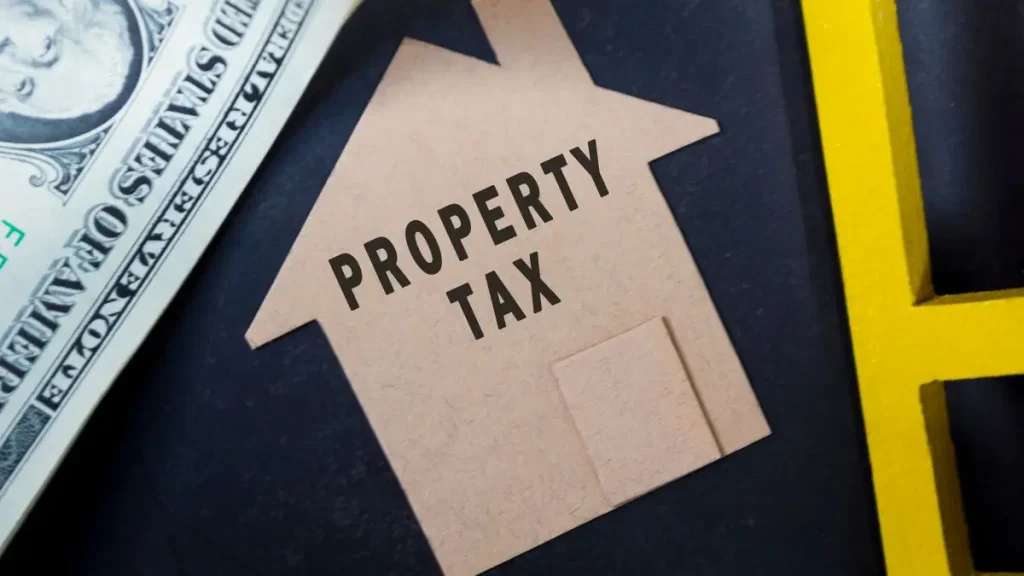Senior Homeowners Could Get Property Tax Breaks in 2025 by State
If you’re 65 or older, you know that staying on top of your finances can be tricky — especially when it comes to property taxes. With the constant changes in tax laws, it’s tough to know whether you’re missing out on relief programs that could save you a lot of money.
The good news? Many states offer property tax relief specifically designed for seniors, and 2025 is shaping up to be a big year for updates and changes. But here’s the thing: it’s easy to get lost in the details, especially when the rules can vary so much from state to state.
So, how do you navigate all this in 2025? Well, you’re in the right place. This guide will give you a clear picture of which states are offering property tax breaks for seniors, how these programs are evolving, and — most importantly — how you can take advantage of them. Whether you’re looking for tax exemptions, deductions, or deferrals, understanding the current landscape will help you keep more of your hard-earned money.
Now, let’s dive into how things are shifting in 2025, and what you can do to ensure you’re getting the relief you deserve.
What to Expect in 2025: An Overview of Property Tax Relief Changes
In 2025, property tax relief for seniors is undergoing some significant changes. Many states are making adjustments to their existing programs, while others are introducing new initiatives to ensure that seniors aren’t burdened with high property taxes in their retirement years. Whether these changes involve expanding eligibility, raising income limits, or introducing new programs altogether, it’s important for seniors to stay informed.
For example, several states are now offering expanded exemptions or tax freezes, while some are tightening their eligibility rules. The key to taking advantage of these opportunities is staying up-to-date on the latest news.
Are you ready to stay ahead of these property tax changes in 2025? Let us know what relief options you’re most excited about in the comments below!
Top States Offering Property Tax Relief for Seniors in 2025

If you’re 65 or older, these 10 states offer excellent property tax relief options in 2025:
- Florida: Generous exemptions for seniors, especially for low-income homeowners.
- Texas: Property tax freeze programs that lock in current rates for seniors aged 65+.
- Pennsylvania: Rebates and exemptions available through the Property Tax/Rent Rebate Program.
- New York: Enhanced STAR program provides school tax exemptions for seniors.
- California: Property tax deferral programs available for seniors, allowing for postponed payments.
- Illinois: Offers the General Homestead Exemption and the Senior Citizens Homestead Exemption.
- Ohio: Offers a property tax rollback for seniors, reducing the taxes on their primary residence.
- Michigan: Property tax credits available for qualifying low-income seniors.
- Georgia: Offers a Senior School Tax Exemption for homeowners 65 or older.
- South Carolina: Provides a special exemption on the first $50,000 of a home’s market value for seniors.
How To Apply for Property Tax Relief if You Are 65 or Older in 2025?
Here’s a quick breakdown of how to apply for property tax relief if you’re 65 or older:
- Find the Right Program: Identify the specific property tax relief program available in your state.
- Check Eligibility: Make sure you meet the age, income, and residency requirements for the program.
- Gather Documentation: Prepare necessary documents like proof of age, income, and property ownership.
- Submit Your Application: Apply online or submit your paperwork to the local tax authority.
- Stay Informed: Keep an eye out for annual reapplications or changes to the program.
What’s your experience with applying for property tax relief? Drop your thoughts or questions in the comments — we’d love to hear from you!
Special Considerations: States Offering Unique Property Tax Relief Options for Seniors
Some states provide unique and often lesser-known property tax relief options for seniors. These programs go beyond simple exemptions or rebates and may offer even more tailored solutions. Here are a few states that stand out due to their distinct property tax relief offerings:
- Hawaii: Seniors 65 and older can apply for a “Property Tax Credit” in certain counties, reducing the overall property tax bill by a significant amount.
- Nevada: Offers a “Tax Deferral Program” that allows seniors to defer property tax payments until the home is sold or transferred.
- Montana: Offers a unique program where seniors who meet specific income requirements can apply for a partial exemption on their primary residence.
- Arizona: Provides a “Property Valuation Protection” option for seniors, protecting the assessed value of their home from significant increases.
- Colorado: Seniors can qualify for a property tax exemption based on income levels, where a portion of their property taxes is exempted entirely.
- Alabama: Offers a “Senior Homestead Exemption” that provides additional exemptions from property taxes for eligible seniors.
These unique options may offer valuable opportunities depending on your location. Be sure to research your specific state or county programs for further details and to understand which programs you might qualify for.
If you’re in one of these states offering unique property tax relief options, make sure to stay connected with other homeowners navigating these programs via social media like X, Facebook and WhatsApp community for updates and tips to ensure you don’t miss any important changes!
States That Don’t Offer Property Tax Relief for Seniors in 2025

While many states provide some form of property tax relief for seniors, there are still a number of states that do not offer any significant tax breaks or exemptions for seniors. In these states, seniors may have to rely on general property tax exemptions or seek other forms of assistance. If you live in one of these states, don’t worry — there are still steps you can take to reduce your tax burden. Here’s a look at some states that may not offer extensive relief:
- Nevada: No property tax exemptions or reductions specifically for seniors.
- Alaska: While Alaska does provide some assistance with general property taxes, seniors do not receive targeted tax relief.
- Tennessee: There are no specific property tax breaks or exemptions for seniors, though some local municipalities may offer relief programs.
- North Carolina: North Carolina offers a limited “Circuit Breaker” program, but eligibility is based on income and there are no broad exemptions for seniors.
- South Dakota: While the state has some general property tax programs, it does not offer targeted relief for seniors.
If you live in one of these states, there are still other strategies you can consider. Consulting with financial advisors and tax professionals to explore local programs, deferral options, or exemptions in your area can help you reduce the impact of property taxes.
According to Real Wealth, a good strategy is to explore home equity conversion or other asset-based approaches that might free up cash flow for seniors in these areas.
While property tax relief is important, another area of concern for seniors is social security income. If you’re also wondering how social security benefits may change in 2025, check out our article on how recent tax plans could impact your income.
Expert Insights: What Financial Planners and Tax Advisors Recommend
Seniors should take a few key steps when dealing with property taxes:
- Check Local Programs: Many local counties offer additional tax relief that you may not find at the state level.
- Consider Tax Deferral: Programs that allow you to defer taxes until the home is sold can help ease immediate financial strain.
- Plan for the Long-Term: Freezing property taxes or using other financial strategies can safeguard against rising taxes.
Financial experts recommend staying proactive and exploring all options available, especially through local authorities.
Conclusion
Property tax relief programs are changing in 2025, and staying informed is crucial. Keep an eye on state and local programs to ensure you’re not missing out on potential savings. If you’re unsure about eligibility, consult a tax professional to make the most of the available benefits.
What’s your next move? Let us know your thoughts or ask questions below!
Disclaimer: This article provides general information on property tax relief for seniors and does not constitute legal or financial advice. Always consult with a tax professional or financial advisor for personalized guidance. Rules and eligibility may vary by state and are subject to change.


